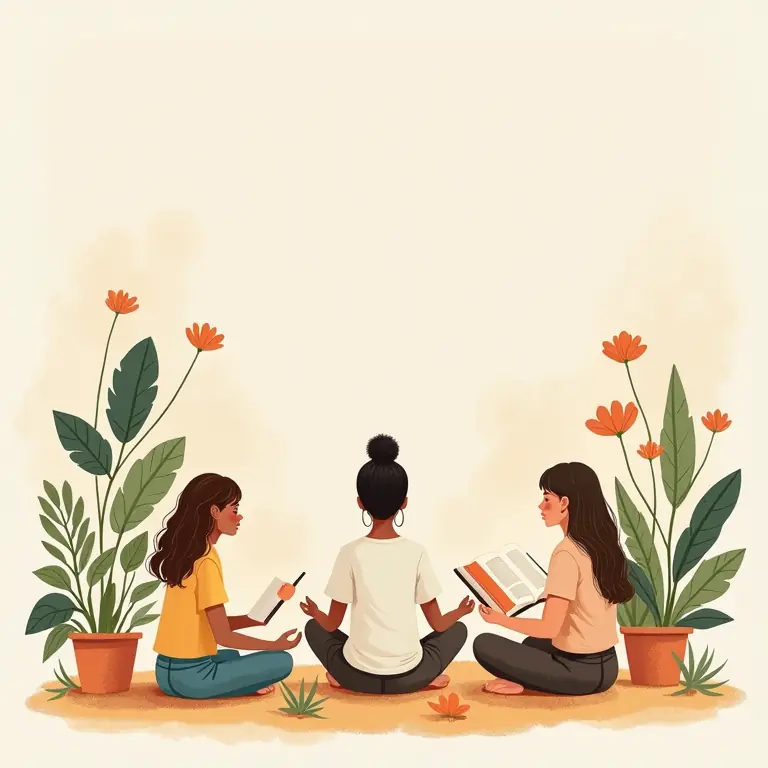Decode Your Downtime: A Friendly Guide to Mindful Hobby Selection
We all have downtime. Those precious pockets of hours and minutes that aren’t consumed by work, obligations, or essential life tasks. But how often do we *truly* use that time to nurture ourselves? Too often, downtime gets filled with mindless scrolling, passive entertainment, or even guilt-ridden thoughts about all the things we *should* be doing. This article is a friendly guide to reclaiming your downtime and transforming it into a source of joy, growth, and well-being through the mindful selection of hobbies.
Why Hobbies Matter: More Than Just Passing Time
Before diving into *what* hobbies to choose, let’s explore *why* they’re so important. Hobbies aren’t frivolous indulgences; they’re vital components of a balanced and fulfilling life. Here’s a breakdown of the benefits:
- Stress Reduction: Engaging in an enjoyable hobby provides a much-needed mental break from the pressures of daily life. The focus shifts from worries and anxieties to the task at hand, offering a sense of calm and relaxation.
- Enhanced Creativity: Many hobbies encourage creative expression, whether it’s painting, writing, playing music, or even building things. This can boost your problem-solving skills and unlock new perspectives.
- Improved Mental Health: Hobbies can combat feelings of boredom, loneliness, and depression. They provide a sense of purpose, accomplishment, and social connection (if pursued with others).
- Skill Development: Learning a new skill is incredibly rewarding. Hobbies offer a low-pressure environment to expand your knowledge and abilities, boosting your confidence.
- Increased Self-Esteem: Successfully completing a hobby project, mastering a new technique, or simply enjoying the process can significantly improve your self-esteem.
- Social Connection: Group hobbies provide opportunities to meet like-minded individuals, build friendships, and expand your social circle.
The Mindful Approach to Hobby Selection
Simply picking a hobby at random isn’t enough. A truly beneficial hobby is one that aligns with your values, interests, and personality. This is where the ‘mindful’ aspect comes in. Here’s a step-by-step guide to help you navigate the selection process:
Step 1: Self-Reflection – What Truly Sparks Joy?
This is the most crucial step. Forget about what’s trendy or what your friends are doing. Think back to your childhood. What did you *love* to do as a kid? What activities made you lose track of time? What subjects fascinated you in school? Consider these questions:
- What are my core values? (e.g., creativity, learning, helping others, physical activity)
- What am I naturally curious about?
- What activities make me feel energized and engaged?
- What am I willing to dedicate time and effort to?
- What skills have I always wanted to learn?
Write down everything that comes to mind, no matter how silly or impractical it seems. This is a brainstorming session – there are no wrong answers. Don’t limit yourself to “traditional” hobbies. Consider things like urban exploration, birdwatching, coding, or even competitive board gaming. For a deeper dive into identifying your passions, check out this guide: Discovering Your Core Interests.

Step 2: Categorize Your Interests
Once you have a list of potential hobbies, categorize them. This will help you identify patterns and narrow down your options. Here are some common categories:
- Creative Arts: Painting, drawing, sculpting, writing, music, photography, filmmaking, crafting
- Performing Arts: Acting, dancing, singing, playing a musical instrument
- Outdoor Activities: Hiking, biking, camping, gardening, fishing, birdwatching, rock climbing
- Indoor Activities: Reading, puzzles, board games, video games, cooking, baking
- Collecting: Stamps, coins, antiques, trading cards
- DIY & Making: Woodworking, knitting, sewing, jewelry making, home improvement
- Learning & Intellectual Pursuits: Language learning, coding, history, astronomy, philosophy
- Physical Activities: Yoga, running, swimming, team sports
Step 3: Consider Your Lifestyle and Resources
Be realistic about your time, budget, and available space. A hobby that requires a significant financial investment or a dedicated workspace might not be practical for your current lifestyle. Ask yourself:
- How much time can I realistically dedicate to a hobby each week?
- What is my budget for supplies, equipment, and classes?
- Do I have enough space for this hobby? (e.g., a workshop, a garden, a music room)
- Does this hobby fit with my physical abilities?
- Is this hobby compatible with my other commitments?
Step 4: Experiment and Try New Things
Don’t be afraid to try a few different hobbies before settling on one. Many community centers, libraries, and online platforms offer introductory classes or workshops. This is a low-commitment way to test the waters and see if a hobby is a good fit. Remember, it’s okay to not enjoy something you thought you would. The goal is to find something that genuinely resonates with you.
Here’s a fun look at the hobby box craze:

Popular Hobby Ideas to Get You Started
Need some inspiration? Here are a few popular hobby ideas, broken down by category:
Creative Arts
- Watercolor Painting: Relatively inexpensive to start, relaxing, and allows for beautiful artistic expression.
- Creative Writing: From journaling to short stories to novels, writing is a fantastic way to explore your thoughts and emotions.
- Digital Photography: Capture the world around you and learn to edit your photos to create stunning images.
- Calligraphy: A beautiful and meditative art form that involves elegant handwriting.
Outdoor Activities
- Hiking: A great way to get exercise, explore nature, and enjoy fresh air.
- Gardening: Grow your own fruits, vegetables, or flowers – a rewarding and therapeutic activity.
- Birdwatching: A relaxing and fascinating hobby that connects you with the natural world.
- Cycling: A fun and eco-friendly way to get around and stay in shape.
Indoor Activities
- Reading: Expand your knowledge, escape into different worlds, and improve your vocabulary.
- Cooking/Baking: Experiment with new recipes and create delicious meals for yourself and others.
- Board Games: A fun and social way to spend time with friends and family.
- Learning a New Language: Challenge your brain and open up new opportunities for travel and cultural understanding.
DIY & Making
- Knitting/Crocheting: A relaxing and creative hobby that results in cozy and practical items.
- Woodworking: Build furniture, toys, or decorative items with your own hands.
- Jewelry Making: Create unique and personalized jewelry pieces.
- Candle Making: A fun and fragrant hobby that allows you to create custom candles.
Overcoming Common Obstacles
It’s common to encounter roadblocks when starting a new hobby. Here are a few common obstacles and how to overcome them:
- Lack of Time: Schedule dedicated time for your hobby, even if it’s just 30 minutes a day. Treat it like an important appointment.
- Fear of Failure: Remember that hobbies are about enjoyment, not perfection. Embrace mistakes as learning opportunities.
- Financial Constraints: Start with inexpensive hobbies or look for free resources online. Utilize libraries and community centers.
- Lack of Motivation: Find a hobby buddy or join a group to stay motivated and accountable.
- Feeling Overwhelmed: Break down complex hobbies into smaller, manageable steps.
The Importance of Flexibility and Evolution
Your interests and needs will change over time, and that’s perfectly okay. Don’t feel obligated to stick with a hobby if it no longer brings you joy. Be open to exploring new options and adapting your leisure activities to fit your current lifestyle. It’s also perfectly acceptable to have multiple hobbies and rotate between them depending on your mood and energy levels. For more advice on adapting your hobbies to life changes, read this article: Adapting Hobbies to Life’s Changes.
Finding a Community
Sharing your hobby with others can amplify the enjoyment and provide valuable support. Look for local clubs, online forums, or social media groups dedicated to your chosen activity. Connecting with like-minded individuals can provide inspiration, encouragement, and opportunities to learn from others. Don’t underestimate the power of a supportive community!
Beyond Just “Doing”: The Power of Process
It’s easy to get caught up in the *results* of a hobby – the finished painting, the completed knitting project, the winning game. But the true value often lies in the *process* itself. Focus on the enjoyment of the activity, the mindful engagement, and the sense of flow. Let go of perfectionism and embrace the journey. This is where the true therapeutic benefits of hobbies come into play. To understand flow states, and how to cultivate them, explore: Cultivating Flow States Through Hobbies.
Final Thoughts
Reclaiming your downtime through mindful hobby selection is an investment in your overall well-being. It’s a chance to nurture your creativity, reduce stress, and cultivate a more fulfilling life. So, take the time to explore your interests, experiment with new activities, and find hobbies that truly spark joy. Your mind, body, and soul will thank you for it.


Discussion about this post